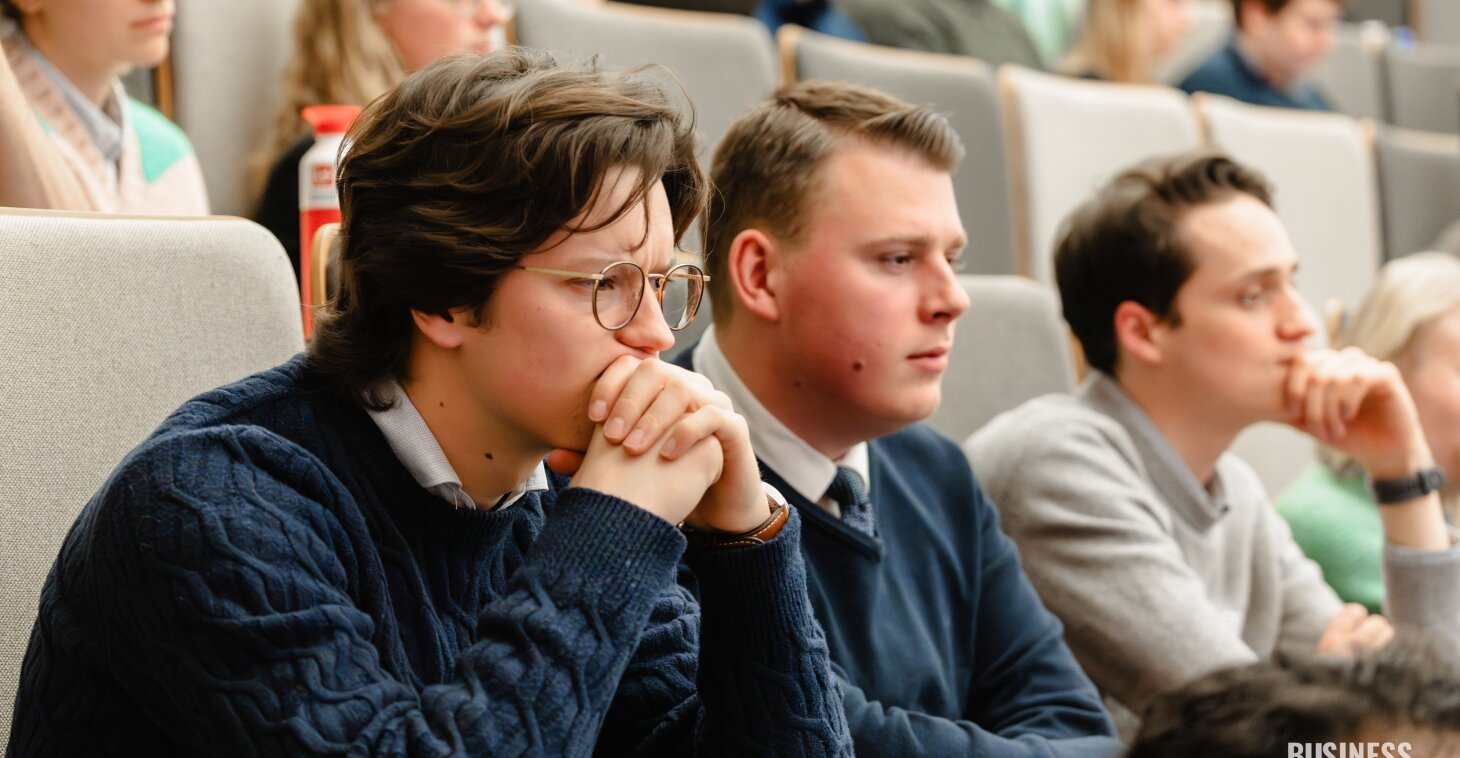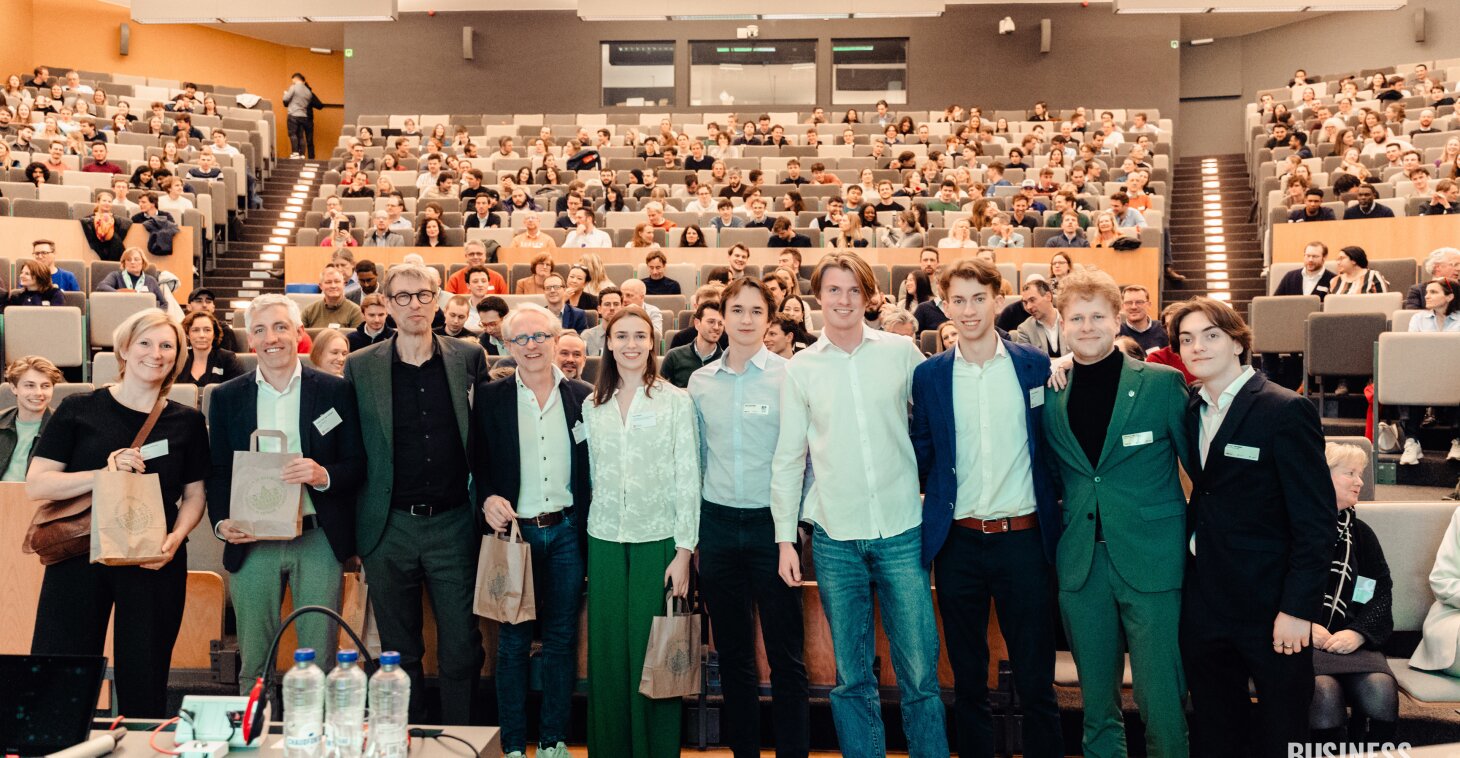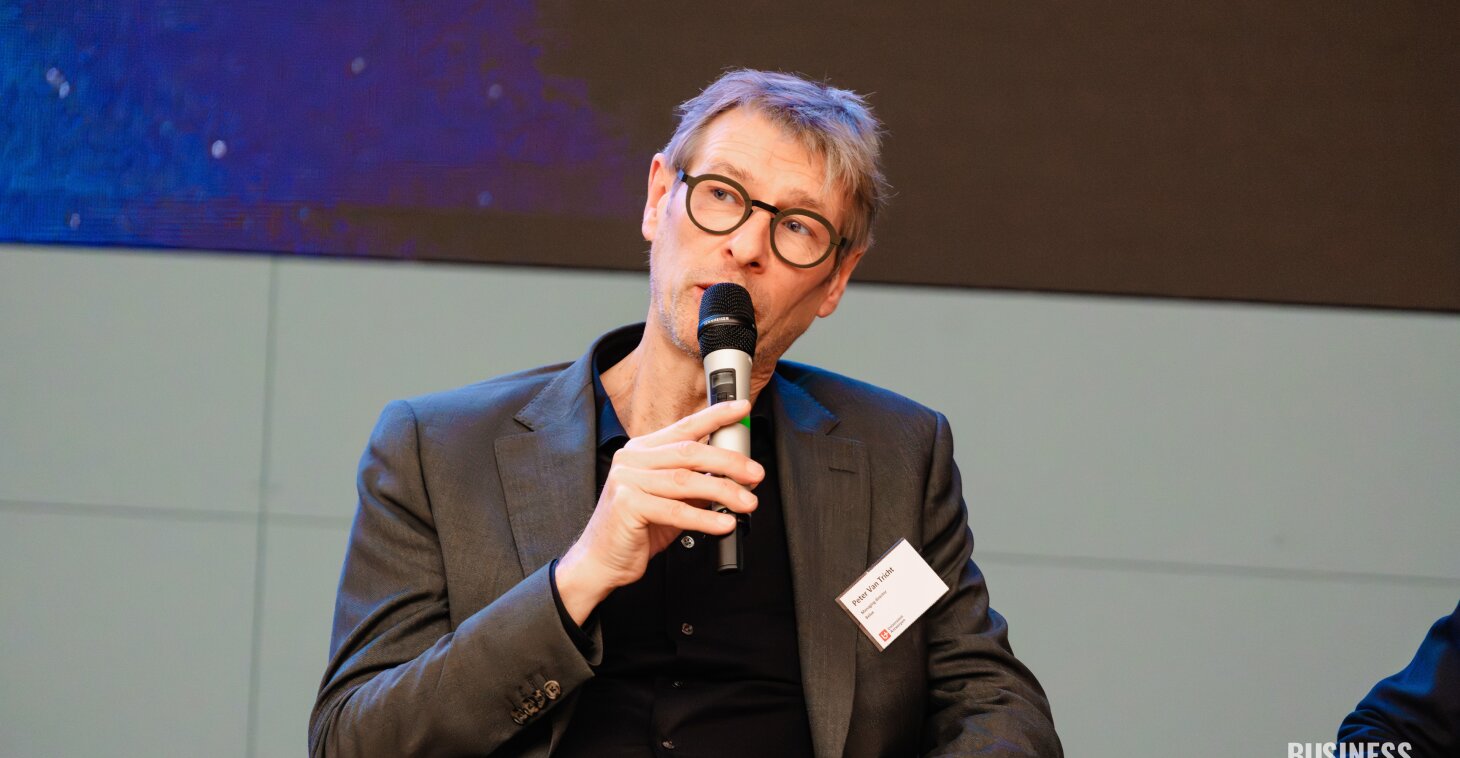The Future is AI: Its Transformative Role in Business and Society
A summary of the panel discussion
The future of AI is now, and it's transforming everything - from our workplaces to how we learn. But how do we balance efficiency with privacy? In what ways can AI address its own ethical problem of its inherent biases? And does AI benefit small or big firms?
This Business Connect Alumni event, jointly organized by the Faculty of Business and Economics, the Antwerp Management School, and IMBIT, attracted alumni, students, and AI enthusiasts who want to explore the evolving role of AI in our daily lives and professional environments. The event featured a panel of tech industry leaders: Thierry Geerts, CEO of Google Belgium & Luxembourg; Marijke Schroos, CEO of Microsoft Belgium; Peter Van Tricht, Managing Director of DXC Belgium; and Peter Van den Spiegel, Head of KPMG Lighthouse. Prof. Dr. Ann Jorissen and Celine Kuysters warmly welcomed the attendees, while Ine Weyts facilitated the discussion, posing audience-submitted questions. Almost every seat was filled, a testament to the growing interest in AI.
AI at Work: Revolutionizing the Workplace
The consensus among the speakers was clear: AI is not just a futuristic concept but a present-day tool driving efficiency and innovation with a lot more to come. Marijke Schroos, CEO of Microsoft Belgium, uses the co-pilot feature during meetings for summarizing discussions and identifying action items. Alongside Thierry Geerts, she highlighted efficiency gains through high-quality translations. Peter van Tricht expanded on AI's versatility, citing sophisticated uses like persona development and automated quality control. But he also pointed out the need for clearer guidelines on issues such as intellectual property rights, code comprehension, and frameworks to safeguard companies against misuse. All in all, the speakers agree that AI, specifically since the introduction of ChatGPT, is crucial tool for innovation, with even more potential on the horizon.
The Moral Compass of AI: Navigating Bias, Trust, and Regulation
The panelists acknowledged the challenge of bias in machine learning, an issue where AI is discriminating due to flawed or limited training data – but remain optimistic about the future. Thierry Geerts highlighted that data scientists are now riguorously trained on this issue, and, nowadays, even AI itself can be used to flag or mitigate biases. Additionally, Peter van Tricht discussed DXC's establishment of a stringent AI council, emphasizing the critical role of trust in AI technology to prevent loss of confidence.
This discussion on bias and trust seamlessly leads into the broader topic of ethical AI use and regulation. The European Union's AI Act aims to address the current transparency and ethical challenges. The panelists offered varied perspectives on its impact. Peter Van den Spiegel acknowledged its merits but warned of the compliance burdens it could impose on small businesses. Contrarily, Thierry Geerts suggested that larger corporations might face more significant challenges, as they are more strongly impacted. Marijke Schroos was optimistic, foreseeing the development of security measures that could alleviate these burdens, especially for smaller firms.
The debate extended to whether AI technology benefits smaller or larger companies more. Schroos argued that AI - which essentially is cloud computing – is for that reason ‘democratizing’ which consequently not only empowers big businesses. In contrast, Peter van Tricht contended that larger companies have a competitive edge due to their access to more extensive data sets. Despite their differences, the panelists agreed on the low barrier to entry for starting an AI company, indicating a broad spectrum of opportunities in the AI landscape.
Redefining Learning through AI
The speakers passionately discussed the transformative role of AI in education. Geerts reflected on the past restrictions of calculators, drawing parallels to today's limitations on AI tools like ChatGPT in classrooms. He predictes a future where AI facilitates individual learning outside traditional classroom settings, but promoting a more interactive and idea-sharing environment within. Despite differing views on the relevance of Latin in high school, there was consensus among the panelists on the urgent need for reform in the Belgium education system. The conversation underscored AI's potential to make learning more fun, engaging and efficient. Peter van Tricht pointed out that AI advancements would not only change education but also the skills required in the future workforce. The speakers are united when they urge the students to dare to fail, to be patient, and to find their field of passion.
The event underscored the belief in AI's potential to significantly benefit various sectors, from healthcare to education and business. The speakers, with their profound expertise, painted a picture of AI as a co-pilot, guiding us towards a future of enhanced efficiency, reduced bias, and greater innovation. The future is indeed AI - and it is bright.
Article by Elisa Vollrath


